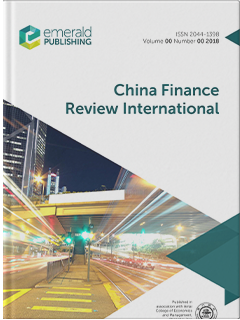COVID-19, various government interventions and stock market performance
IF 7.6
1区 经济学
Q1 BUSINESS, FINANCE
引用次数: 1
Abstract
PurposeAccording to the Government Response tracker (oxCGRT) index, the overall government response, stringency, economic support, containment and health policies to COVID-19 from January 2020 to December 2022. The main objective of this paper is to explore how stock market performance is affected by these polices, respectively.Design/methodology/approachThe authors employ EGARCH and autoregressive distributional lag (ARDL) models to test the impact of epidemic prevention policy implementation on stock market returns, volatility and liquidity and make cross-country comparisons for six important world economies.FindingsFirstly, the implementation of various preventive policies hurts stock market returns and increases volatility, but there are a few indicators that have no effect or have an easing effect in some countries. Secondly, health policies exacerbate market volatility and have a stronger effect than other policy indicators. Thirdly, In China and the USA, anti-epidemic policies have been shown to worsen liquidity, while in Japan they have been shown to improve liquidity.Originality/valueFirst, enrich the growing body of COVID-19 research by comprehensively examining whether and how government prevention policies affect stock market returns, volatility and liquidity. Second, explore the impact of different types of intervention policies on stock market performance, separately.COVID-19、各种政府干预和股市表现
目的根据政府应对追踪(oxCGRT)指数,2020年1月至2022年12月政府对新冠肺炎的总体应对、严格程度、经济支持、遏制和卫生政策。本文的主要目的是分别探讨这些政策对股市表现的影响。设计/方法论/方法作者采用EGARCH和自回归分布滞后(ARDL)模型来检验防疫政策实施对股市回报、波动性和流动性的影响,并对世界六个重要经济体进行跨国比较。发现首先,各种预防性政策的实施损害了股市回报,增加了波动性,但在一些国家,有一些指标没有效果或具有缓解效果。其次,卫生政策加剧了市场波动,其影响比其他政策指标更强。第三,在中国和美国,抗疫政策已被证明会恶化流动性,而在日本,它们已被证明能改善流动性。原创/价值首先,通过全面研究政府预防政策是否以及如何影响股市回报、波动性和流动性,丰富新冠肺炎研究的日益增多的群体。其次,分别探讨不同类型的干预政策对股市表现的影响。
本文章由计算机程序翻译,如有差异,请以英文原文为准。
求助全文
约1分钟内获得全文
求助全文
来源期刊

China Finance Review International
BUSINESS, FINANCE-
CiteScore
12.40
自引率
1.20%
发文量
112
期刊介绍:
China Finance Review International publishes original and high-quality theoretical and empirical articles focusing on financial and economic issues arising from China's reform, opening-up, economic development, and system transformation. The journal serves as a platform for exchange between Chinese finance scholars and international financial economists, covering a wide range of topics including monetary policy, banking, international trade and finance, corporate finance, asset pricing, market microstructure, corporate governance, incentive studies, fiscal policy, public management, and state-owned enterprise reform.
 求助内容:
求助内容: 应助结果提醒方式:
应助结果提醒方式:


